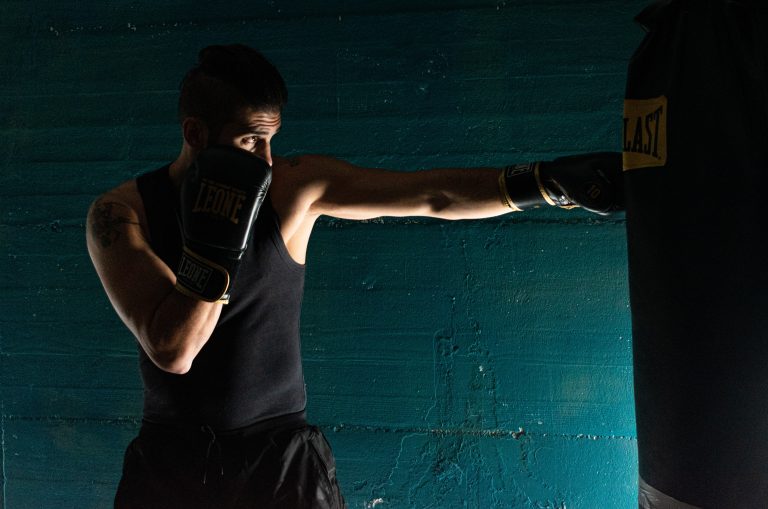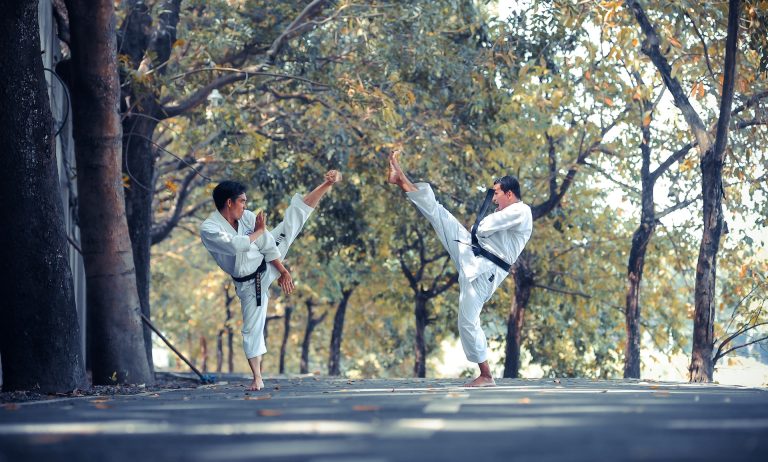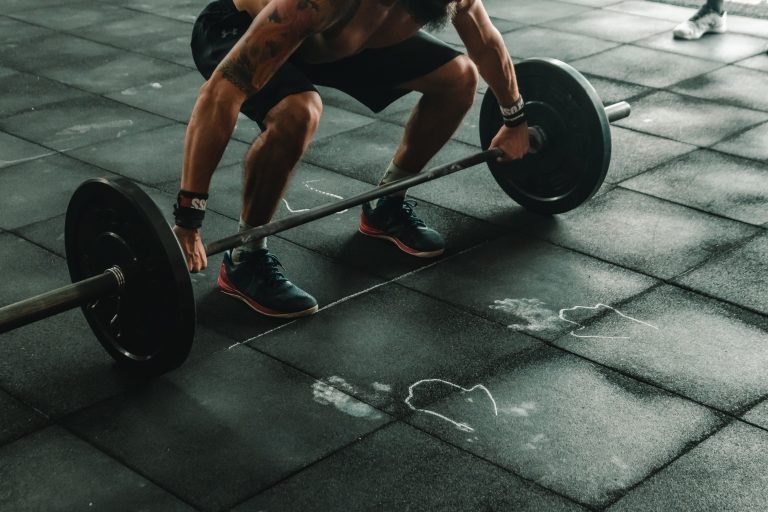How Karate Helps You: Health, Fitness and Self-Defense
Karate is one of the most popular martial arts in the world, and for good reason. This ancient practice offers a range of physical and mental benefits, from improved strength and agility to increased self-confidence and discipline. Whether you’re looking to get in shape, learn self-defense or simply improve your overall health and well-being, karate is a great choice. In this post, we’ll explore some of the ways that karate helps you, and why you should consider taking up this dynamic and challenging practice today.
The Health Benefits of Karate
One of the most obvious benefits of practicing karate is the improvement to your physical health. Karate offers a full-body workout that helps you to build strength, endurance, and flexibility. By performing a range of dynamic movements, kicks, and strikes, you’ll work every muscle group in your body, from your core to your arms, legs, and back.
If you’re looking to lose weight or tone up, karate is a great way to burn calories and build lean muscle mass. A single karate class can burn up to 500 calories, making it an effective way to improve your overall fitness and get leaner.
Karate also offers a range of cardiovascular benefits. By performing fast-paced, high-intensity exercises, you’ll raise your heart rate and improve your overall cardiovascular health. Regular karate practice can reduce your risk of heart disease, stroke, and other chronic conditions, while also improving your lung capacity and overall fitness.
The Self-Defense Benefits of Karate
While karate is a great way to improve your physical health, it’s also a powerful tool for self-defense. Karate is a form of martial arts that teaches self-defense techniques and strategies, helping you to protect yourself in dangerous situations.
By learning how to strike, block, and defend yourself, you’ll gain greater confidence and self-assurance, as well as improve your awareness of your surroundings. This can be particularly useful for women, who are often at greater risk of violent attacks.
In addition to physical self-defense techniques, karate also teaches mental self-defense strategies. By learning how to remain calm and focused under pressure, you’ll be better equipped to handle stressful or dangerous situations, and better able to protect both yourself and those around you.
The Mental and Emotional Benefits of Karate
In addition to its physical and self-defense benefits, karate also offers a range of mental and emotional benefits. By practicing karate, you’ll improve your self-discipline, focus, and concentration, helping you to achieve your goals and overcome obstacles in other areas of your life.
Karate is also a great way to reduce stress and improve your overall mood. The endorphins released during exercise can help to reduce feelings of anxiety and depression, while the focused and repetitive movements of karate can be meditative and calming.
Finally, karate can help to improve your self-confidence and self-esteem. By setting and achieving goals in your practice, you’ll feel a sense of accomplishment and pride, which can spill over into other areas of your life. This can be particularly beneficial for children, who may struggle with self-confidence or peer pressure.
How Karate Helps You: Answering the Most Frequently Asked Questions
Karate is a popular martial art that originated in Japan and has been practiced for centuries. It is a popular form of physical activity that has many benefits, including self-defense skills, increased agility, strength, and endurance, improved mental health, and more. If you are considering taking up karate, or if you are already practicing it, you may have some questions about how it can benefit you. Here are answers to some of the most frequently asked questions about how karate helps you.
1. Can karate help me defend myself?
Yes, karate can be a highly effective form of self-defense. Practicing karate can help you learn techniques to protect yourself in a variety of situations, including physical attacks. Karate training involves learning how to strike and block opponents, as well as how to take down an opponent or escape from a dangerous situation. Through regular practice, you will become stronger and more confident in your ability to defend yourself.
2. Is karate good exercise?
Yes, karate can be an excellent form of exercise. It is an intense martial art that requires strength, agility, and endurance. Karate training involves a range of movements, including punching, kicking, and grappling. These movements work many different muscle groups in the body and can help you develop a lean and toned physique. Additionally, karate training can help you improve your cardiovascular health, increase flexibility, and reduce stress.
3. Can karate help me improve my focus?
Yes, practicing karate can help improve your focus and mental clarity. Karate training involves a lot of repetition and requires you to pay close attention to your movements and technique. This can help strengthen your ability to concentrate and improve your overall mental focus. Additionally, karate training involves meditation and breathing exercises, which can help reduce stress and anxiety and promote relaxation.
4. Can karate help me build confidence?
Yes, karate training can help you build confidence in many ways. Regular practice of karate can help you develop physical strength and agility, which can give you a sense of accomplishment and improve your self-esteem. Additionally, learning self-defense skills and practicing them in a controlled environment can give you the confidence to protect yourself if necessary. Finally, karate training involves setting and achieving goals, which can help you develop a sense of discipline and confidence in your ability to achieve your objectives.
5. Can karate help me make friends?
Yes, practicing karate can be a great way to make friends and build a sense of community. Karate schools often offer classes for students of all ages and skill levels, and many students develop close relationships with their classmates and instructors. Additionally, practicing karate together can foster a sense of camaraderie and teamwork, which can be beneficial both during and outside of class.
How to Get Started with Karate Training and Improve Your Health and Mindset
Karate has been practiced for centuries as a martial art form that goes beyond self-defense techniques. It is a lifestyle, a discipline, and an art that promotes physical and mental health, improves focus and concentration, and boosts self-confidence. If you are interested in learning karate and want to know how it can benefit you, then you have come to the right place. This guide will provide you the step-by-step instructions on how to get started with karate training and improve your overall well-being.
Step 1: Find a Good Karate School or Instructor
The first step in starting karate training is to find a good school or instructor near you. Do some research online, read reviews, and ask for recommendations from friends or family members who have experience in martial arts. Look for a school/instructor that has good credentials, proper certifications, and can offer training suited to your level of experience.
Step 2: Choose the Right Karate Style
Karate is not a single style but a collection of different styles, each with its own unique features and techniques. Some of the most popular karate styles include Shotokan, Goju-ryu, Shito-ryu, and Wado-ryu. Visit each school, talk to instructors and other students to get a taste of what the different styles entail. Choose the style that fits your personality, goals, and physical capabilities.
Step 3: Buy the Basic Karate Gear
Once you have found the right school and style, it’s time to purchase the essential karate gear. The most important of these include:
- Uniform (Gi): The traditional karate uniform should be lightweight and comfortable to allow for unrestricted movement. The white color is the most common, but other colors such as black, blue, or red are also acceptable.
- Belt: The belt color reflects the wearer’s rank, with white being the beginner level and black being the highest rank.
- Protective gear: These include gloves, shin guards, and mouthpiece.
- Water bottle and towel: Staying hydrated during a karate session is crucial, and a towel can come in handy to wipe off sweat during breaks.
Step 4: Attend Regular Karate Classes
Karate training requires discipline and consistency. Attending regular classes not only helps you build your skills but also helps develop commitment and accountability to yourself and your team. The frequency and duration of classes will depend on the school and style you choose, but most schools have classes at least twice a week.
Step 5: Practice, practice, practice
Karate training is not just limited to the classes but requires constant training outside of the school as well. Practicing at home or at the school helps improve techniques, consistency, and endurance. It also aids in building muscle memory, allowing for instinctive responses during competitions or combat.
Step 6: Maintain a Healthy Diet and Lifestyle
Karate training requires a healthy body and mind. A balanced diet rich in fruits, vegetables, and lean protein, combined with sufficient rest and physical activity outside of the school, can help improve physical performance and mental stamina. Avoiding unhealthy habits such as smoking, drinking alcohol, or consuming junk food is vital to achieving optimal results.
Conclusion
Karate training is much more than learning self-defense techniques. It improves physical and emotional health, builds discipline and mental focus, and develops a positive mindset. Follow the steps in this guide, and you’ll be on your way to a healthier and more fulfilling life through karate training. Start your journey today and experience the benefits of karate for yourself.
Inhaltsverzeichnis






